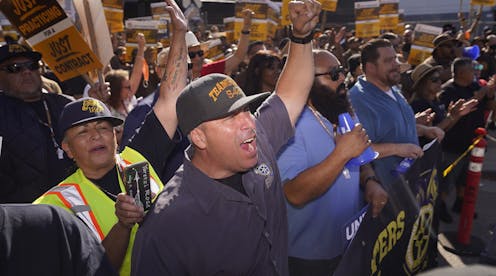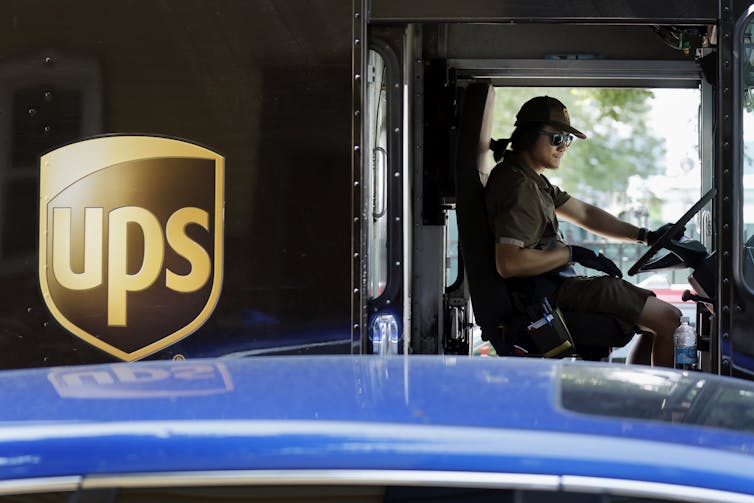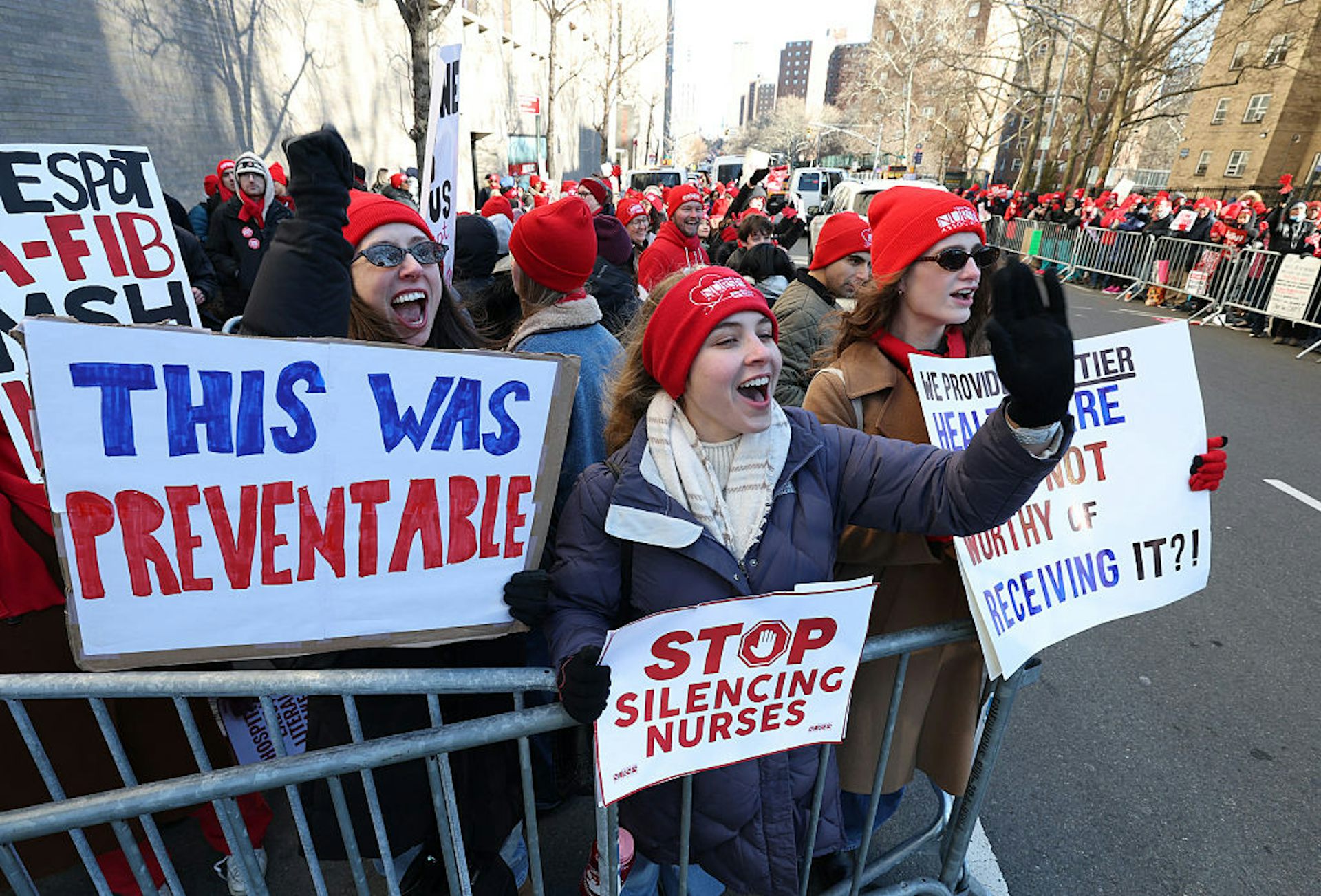UPS and Teamsters agree on new contract, averting costly strike that could have delayed deliveries f
The strike would have been the first for the parcel delivery giant since 1997.

The International Brotherhood of Teamsters union and UPS have agreed on a new five-year contract that boosts wages and guarantees more air conditioning in drivers’ trucks. The tentative deal, struck on July 25, 2023, came one week before an Aug. 1 deadline that the Teamsters had set for threatened strike – which would have been the first by UPS workers since 1997.
The Conversation asked Jason Miller, a supply chain scholar at Michigan State University, to explain what happened and to sum up the significance of this deal, which is slated to keep 300,000 workers on the job.

What’s in this contract?
UPS has agreed to:
Increase starting hourly pay for part-time workers to US$21, up from $16.20;
Raise the hourly pay of existing part- and full-time workers by $2.75 in 2023 and $7.50 more over the next five years;
Make Martin Luther King Jr. Day, the third Monday of January, a paid holiday;
Stop requiring UPS employees to work overtime hours on their days off;
Add fans and install air conditioning in many trucks to improve cooling;
Create another 7,500 full-time Teamster jobs and fill 22,500 open positions;
Teamsters General President Sean O'Brien hailed the agreement as a victory. “This contract sets a new standard in the labor movement and raises the bar for all workers,” he said.
What does this deal say about the supply chain and labor?
This deal further reinforces the strong bargaining position of unions representing workers in the logistics sector – not just in the U.S. but also in Canada, Europe and elsewhere.
U.S. shipping could still be disrupted amid one of the tightest labor markets in decades, since UPS rival FedEx recently had its 5,200 pilots reject a new labor agreement.
That said, TForce Freight – formerly UPS Freight – reached its own new five-year contract with the Teamsters earlier in July, as did competitor ABF Freight. Unionized pilots at Delta Airlines and American Airlines also recently agreed to new contracts with large raises – a 34% boost, in Delta’s case.
My view is that UPS was more willing to accept the Teamsters’ demands because current economic conditions favor labor. In addition, the company realized that a strike could have cost it substantial market share, up to 30% of volume by one estimate. Combined with the company’s recent high profits, it was not in UPS management’s interest to let a strike proceed.
What would have happened had there been a strike?
Roughly 57.3% of the packages UPS delivers are shipped straight to consumers. The rest go to retailers and other businesses.
Based on my years of researching transportation operations and supply chain disruptions, the impact of a UPS strike would have stretched far beyond delayed delivery of everything from pet food to tennis rackets that U.S. consumers buy online.
A UPS strike could have disrupted the availability of spare parts for cars and wholesale medical supplies, just to name a few essentials. Consumers would also have found it harder to get clothing and shoes in stores, as retail locations are typically replenished by parcel carriers.
Even a 10-day strike could have cost the U.S. economy an estimated $7.1 billion, according to research firm Anderson Economic Group. That would have made it potentially the costliest strike in U.S. history. These costs stem from the 340,000 striking workers losing an estimated $1.1 billion in wages and UPS losing $816 million in earnings. The balance of this estimate would result from the disruptions incurred by UPS customers.
What’s next?
The tentative agreement now must be ratified by Teamsters employed by UPS. Voting is expected to conclude on Aug. 22. My expectation is that the union’s rank-and-file members will approve this contract.
Portions of this article appeared in a prior article published on July 20, 2023.
Jason Miller does not work for, consult, own shares in or receive funding from any company or organization that would benefit from this article, and has disclosed no relevant affiliations beyond their academic appointment.
Read These Next
AI’s growing appetite for power is putting Pennsylvania’s aging electricity grid to the test
As AI data centers are added to Pennsylvania’s existing infrastructure, they bring the promise of…
Making sense of a chaotic planet: How understanding weather and climate risks depends on supercomput
Behind the long-term climate projections that affect our lives sits one of the most remarkable scientific…
Pittsburgh nurses are fighting for better staffing ratios — and the research backs them up
As nurses in Pittsburgh and nationwide spotlight staffing shortages, better pay and workplace safety,…






